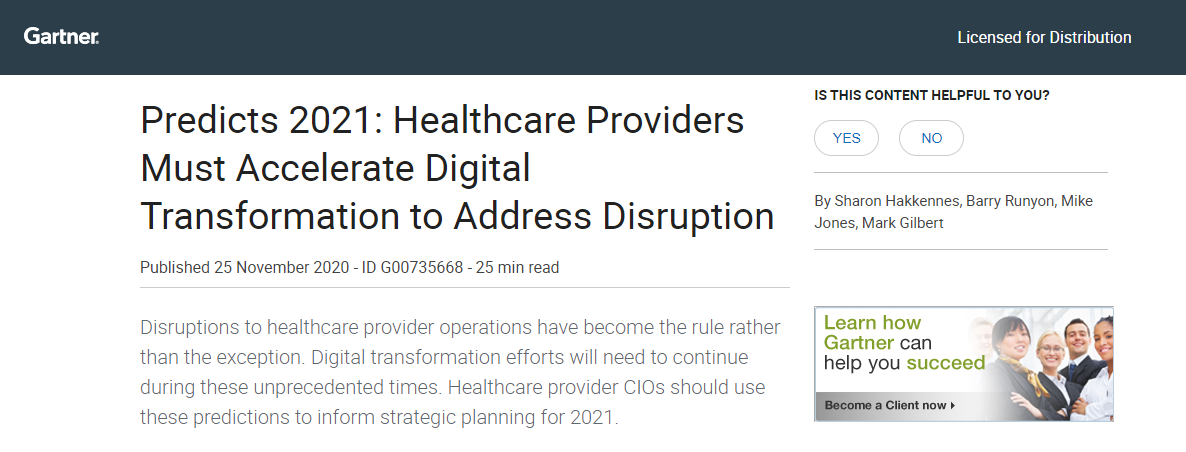
Healthcare CIOs today are faced with a new paradigm as they navigate a complex and changing industry and market landscape. Disruptions caused by the global pandemic continue to transform how healthcare organizations operate, necessitating innovative approaches and the adaptation of virtual models for care delivery. Today’s reality is that digital transformation is in motion and will continue to progress, forcing CIOs to adopt novel ways to address the needs of their patients most effectively and efficiently. Failure to do so could create significant competitive pressures on healthcare organizations.
Gartner’s Predicts 2021 report uncovers emerging industry insights and outlines predictions that will impact healthcare organizations.
- Virtual healthcare: Leading HDOs are pivoting virtual care efforts from a reactive stance in response to pandemic conditions to a proactive growth strategy with a wide range of virtual care services. According to Gartner, “by 2022, 30% of outpatient encounters will be virtual, representing 15% of revenue, and making the effectiveness of this new care setting a leading strategic objective for HDOs.”
- Health assistants: “By 2023, 30% of HDOs will deploy virtual health assistants for digital patient triage, replacing humans in directing patients to the right level of care. 35% of HDOs will have shifted workflows outside the EHR to deliver better digital experiences.”
- Consumer-Mediated Exchange (CME): “By 2024, 20% of all health information exchanged among patients and providers will be consumer-mediated.”
As America’s first and largest network, T-MobileTM for Business is committed to supporting your healthcare delivery organization’s connectivity needs so that you can focus on what really matters–caring for your patients.
Read the Gartner report to gain further insights into how the healthcare environment is evolving, and the impact this digital transformation is having on CIOs who should leverage this information for their 2021 strategic planning efforts.